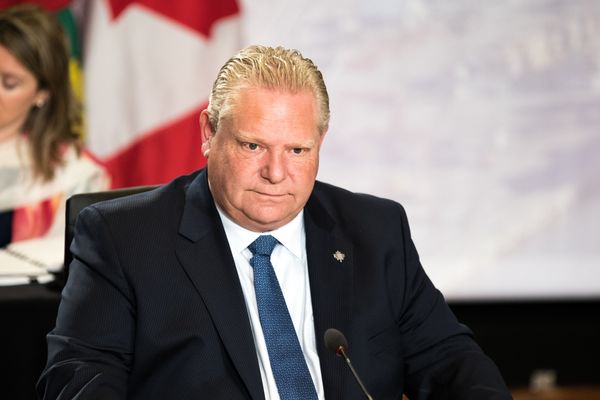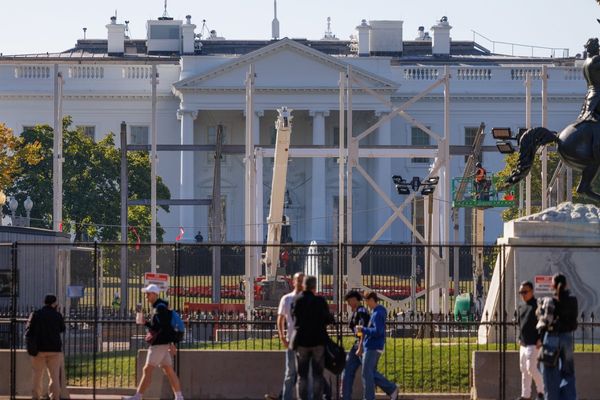WASHINGTON _ Expect a slow-moving Congress to act swiftly and without delay when asked to confirm President Donald Trump's latest Supreme Court choice.
And there's virtually nothing Democrats can do to stop this.
Minutes after Justice Anthony Kennedy announced his retirement, Senate Majority Leader Mitch McConnell took to the Senate floor to promise a vote "this fall."
That virtually assures a confirmation vote before the Nov. 6 election, when Republicans could lose control of the Senate or end up with an even narrower majority. The GOP now controls 51 of the Senate's 100 seats. Democrats need a net gain of two to win control in 2019.
"The Senate stands ready to fulfill its constitutional role by offering advice and consent on President Trump's nominee to fill this vacancy," McConnell said. And, in a warning to Democrats, he said that it is "imperative that the president's nominee be considered fairly and not be subjected to personal attacks."
McConnell, who earned the enmity of Democrats for refusing in 2016 to hold a hearing for President Barack Obama's pick for the Supreme Court after Justice Antonin Scalia died that February, now wants to move rapidly to get a new justice seated.
McConnell has made confirming Trump-nominated judges a top priority, boasting in recent interviews that the president has appointed one-eighth of all federal circuit court judges.
At an event Wednesday before Kennedy's announcement, McConnell called his refusal to allow a hearing for Merrick Garland, Obama's Supreme Court choice, the "single most consequential decision I've ever made."
McConnell called complaints "rank hypocrisy," adding he was confident "that had the shoe been on the other foot, a Democratic Senate simply would not have confirmed a Supreme Court nominee from a Republican president in the middle of an election."
McConnell's decision in 2017 to lower the threshold for advancing Supreme Court nominations from 60 votes to a simple majority means he does not need Democrats but he will need the more liberal members of his own caucus, including Sens. Susan Collins, R-Maine, and Lisa Murkowski, R-Alaska, who have supported abortion rights.
Kennedy was widely seen as a bulwark against the effort to overturn Roe v. Wade, the landmark 1973 Supreme Court decision guaranteeing women's access to abortion. He was also key to the 2013 vote ensuring that gay couples have a right to marry.
Senate Democrats called for the Senate to maintain the same standard for considering Kennedy's successor as McConnell did when requiring the Garland nomination to be delayed until after the election.
"Anything but that would be the absolute height of hypocrisy," Senate Minority Leader Chuck Schumer of New York said on the Senate floor.
Republicans rejected the comparisons to the blockade of Garland. "This is not a presidential election year. Big distinction," McConnell's spokesman Don Stewart tweeted.
McConnell's decision to change Senate rules to make it easier for Republicans to confirm Neil Gorsuch, Trump's first Supreme Court choice, means Democrats don't have the power to hold Republicans to that standard. All they can do is protest and delay _ although not for long enough to prevent a vote before the election.
California Sens. Dianne Feinstein and Kamala Harris, both Democrats, will be in the middle of that effort, as high-profile members of the Senate Judiciary Committee who will grill the president's court pick.
"We're now four months away from an election to determine the party that will control the Senate," Feinstein said. "There should be no consideration of a Supreme Court nominee until the American people have a chance to weigh in. Leader McConnell set that standard in 2016 when he denied Judge Garland a hearing for nearly a year, and the Senate should follow the McConnell Standard."
Harris warned that the list of potential Supreme Court nominees Trump has made public are "complete nonstarters." In a statement, she called Trump's choices "conservative ideologues instead of mainstream jurists. We cannot and will not accept them to serve on the highest court in the land."
Democrats were already trying to capitalize on the impending Supreme Court battle to mobilize voters the way conservatives did to help elect Trump in 2016.
"Come November, the stakes can't be higher," the Democratic Congressional Campaign Committee tweeted. "A Democratic Congress will be the only check left on Trump and the toxic Republican agenda."
Pressure on Democrats to hold the line against a Trump nominee will be considerable. Liberal groups were chafing for a delay and calling on Democrats to do all they can: The liberal group MoveOn insisted there should not be a confirmation vote "while Trump is under investigation" by the special counsel.
At the White House, Trump told reporters that the replacement process would "begin immediately" and that he hoped to pick someone from his list of contenders.
"Hopefully, we will pick someone who is just as outstanding," Trump said of Kennedy.
Among those candidates is Amal Thapar, a Kentucky judge with ties to McConnell, whom Trump nominated to a seat on the federal appeals bench.
McConnell cited Thapar, whose family emigrated from India, to counter criticism that Trump's judicial selections have been mostly white men: "I think there's a conscious effort to appoint strict constructionists," McConnell said at an event Wednesday ahead of Kennedy's announcement. "I don't think they should be consumed with race or gender."
A liberal group, Demand Justice, is airing an ad that seeks to paint Thapar, as a friend McConnell and a "far right" judge who authored a court decision that would allow wealthy donors to influence elections.
On other side of the battle, the conservative Judicial Crisis Network, which spent millions to block Garland and back Gorsuch, is launching a new seven-figure ad campaign to pressure vulnerable 2018 Democratic senators to support Trump's selection.







